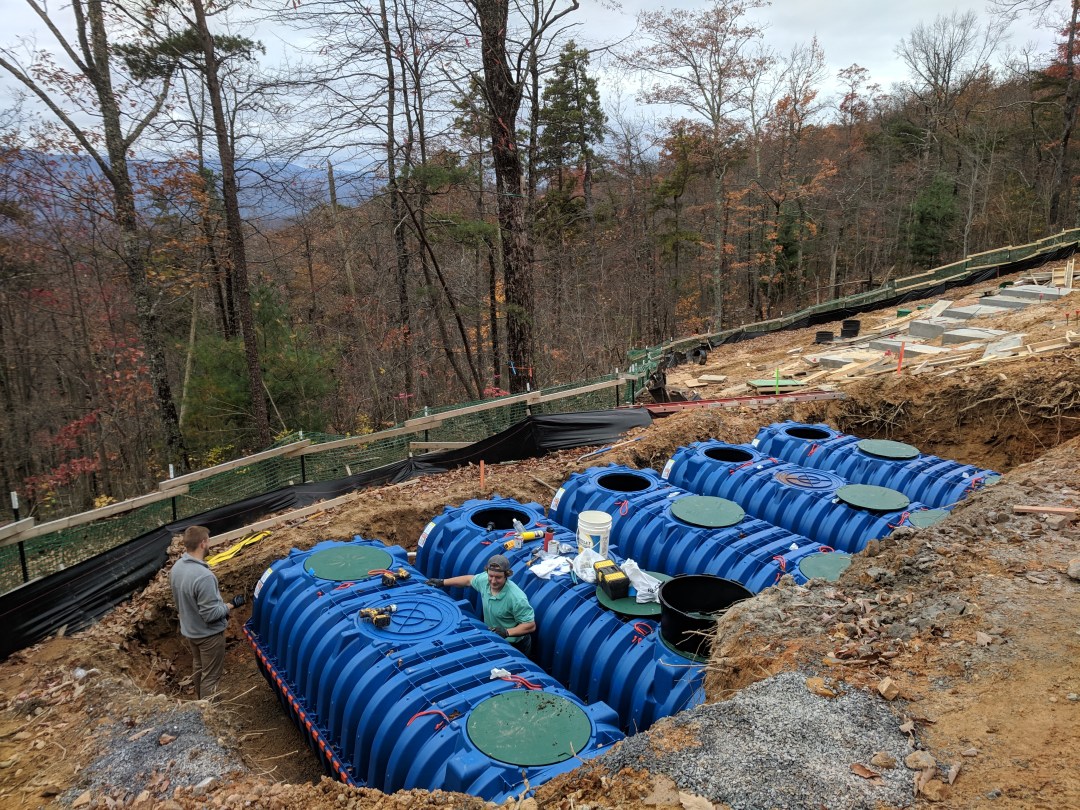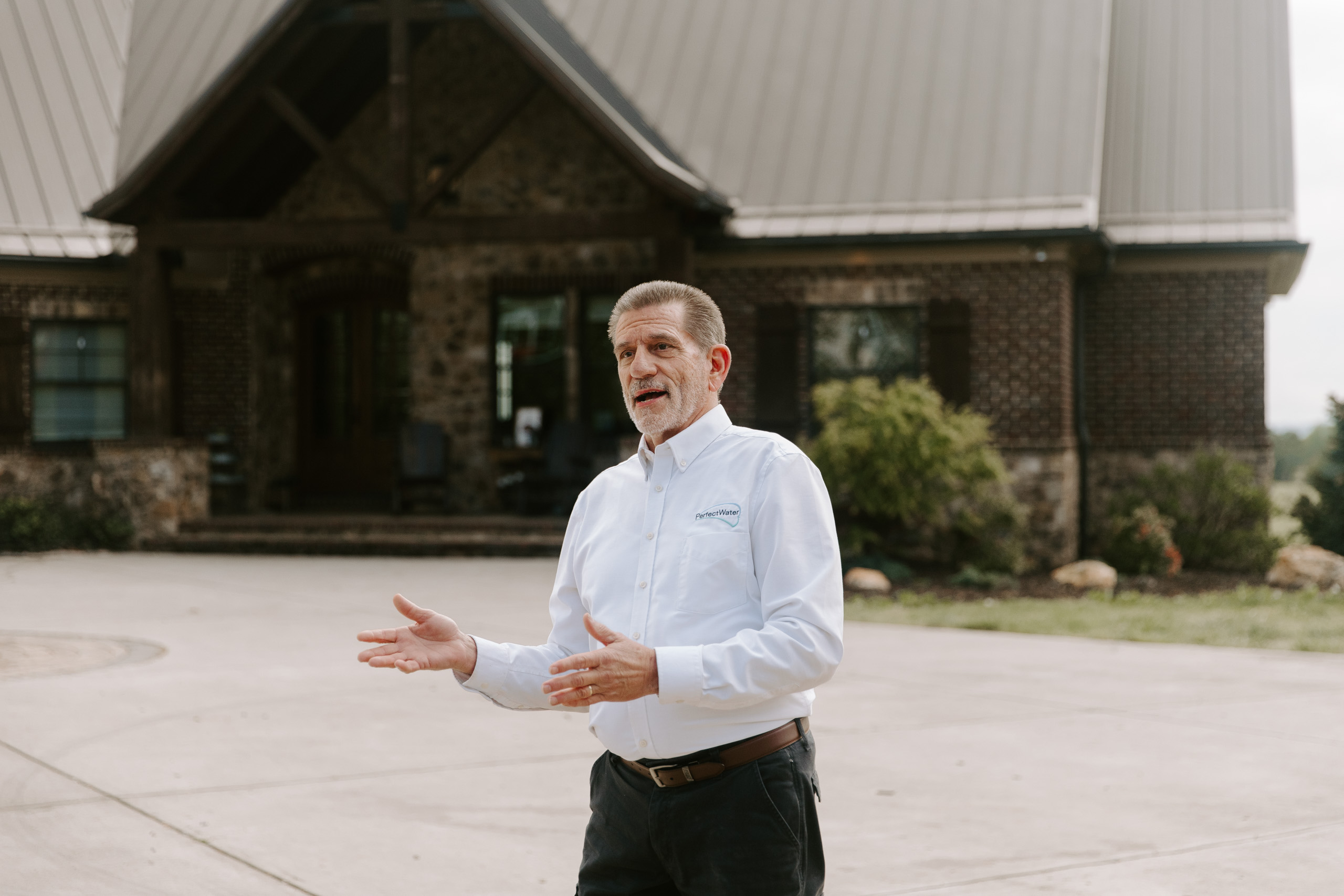Can My Home Be Fully Supplied with Rainwater Harvesting?

A common misconception about rainwater harvesting is that it is just whatever you can catch in barrels in your backyard. New technology and ideas have made it possible to have a clean, soft, beneficial rainwater supply for your entire house year-round. Some may still be understandably skeptical, which is why we are breaking down what it takes to supply your home with rainwater and if anyone in the U.S. is already doing it.
Is This Actually Possible?
The idea of off-grid water is not exactly a new concept. It's estimated that 13 million households in the U.S. alone get water from a private water source. While most of those are still private wells, more people than ever are switching over to the benefits of rainwater harvesting. One survey of rainwater harvesters found that 25% of those surveyed used their rainwater for potable use. The number will likely increase as people learn more about the benefits and safety of rainwater.
One of the biggest concerns with going completely off-grid with a rainwater harvesting system is that the water will run out, an idea that is likely because people don't fully understand how rainwater harvesting works. Many storage options are available to meet your individual needs, but storage size is only one factor. Knowing how much water your household uses and how much water to expect each month. So, living with rainwater as your primary water source is possible on paper, but is anyone really doing it?
Meet the Swigers
The Swigers built their dream house in Tennessee, but the well they dug to supply the property ran out after only a few weeks. This left the Swigers with a brand-new bathroom taking showers out of gallon jugs. Even before the well stopped working, they saw issues with the water, like astronomical hard water levels that meant they were "basically drinking liquid rock." Like everyone, the Swigers were worried that they would not have enough rainwater to supply their home, but they have 5,000 gallons of capacity, and they say they have never dipped below 4,000 gallons. In addition, they are happy that they are saving money on water bills and getting a much higher quality of water than they would with well or city water.
Rainwater Harvesting as an Alternative to Well Water
We've established that rainwater harvesting can be just as, if not more, reliable as well water, but there are more reasons why people are leaving well water behind for rainwater.
Water Quality
Since well water is pulled through the ground, it picks up plenty of minerals along the way, making it hard. Hard water can cause problems everywhere in your house, from your pipes to your appliances and even your skin, and it costs you extra each year with water softener stocking and maintenance. In addition, well water can come in contact with ground contaminants like pesticides and doesn't have the filtration our harvesting system has.
In comparison, rainwater falls from the sky and travels from your roof to your holding tanks, so it is the softest water possible. While rainwater can still come in contact with some contaminants, it is already cleaner than well water before it starts filtration. Decades of water filtration experience have led us to create a filter that delivers the purest water to your home. Water is first filtered when it leaves the gutters to remove large debris like sticks and leaves, then stored in antimicrobial tanks. When the water is pumped to the house, it goes through a three-step filtration process that removes any smaller sediment, improves taste, and kills any bacteria that could be in your water.
Water Availability and Reliability
As was the case with the Swigers, you can never really know when your well will run out and if there will be another place on your property to dig a new well. All that digging to find a new well can end up costing a lot of money and not having any guaranteed results. On the other hand, you will always know how much water you will have because we pull the yearly rain totals from the past 100 years.
Even if there is enough water in your well, other factors make rainwater a more reliable option. For instance, wells have to be drilled where the water is, which can sometimes be a significant distance from the house, which means a pump has to pump water all that distance which can shorten the life of the pump and will lead to lower water pressure.
The Back-Up Plan
Our rainwater harvesting systems have a secret that ensures that you will never run out of water. Unlike other off-grid water supplies, there are two ways you can still get water to your home in the unlikely event that your tanks run out. First, our tanks have an automatic switchover system that will switch your water to another source like well or city water if your tanks get too low. Secondly, and more importantly for those who want to live truly off-grid, our tanks have ports to add water from an outside source. Most fire departments are happy to fill the tanks for a small donation. It is vital to remember that the likelihood of this ever happening is slim, but it does bring peace of mind that you can live totally off the grid even in drought conditions.
All the Benefits, None of the Sacrifice
The simple fact is that most people in the United States can live entirely off-grid with a rainwater harvesting system. The two main obstacles for most people switching are space and local regulations, but with multiple tank options and an increasingly positive view of rainwater harvesting, these obstacles are beginning to disappear. Before ground is ever broken, you will know everything you need to know, from how big of a tank you need to how big your roof needs to be, and of course, how much rain you can expect from one hundred years of records. To start a self-sufficient water journey, contact us with any questions or schedule a consultation to start the process.
Ready to Take Control of Your Water Supply?
Don’t wait for water shortages or unreliable sources to disrupt your life. With our Rainwater Harvesting systems, you can enjoy a sustainable, reliable, and completely self-sufficient water solution tailored to your home’s needs.

